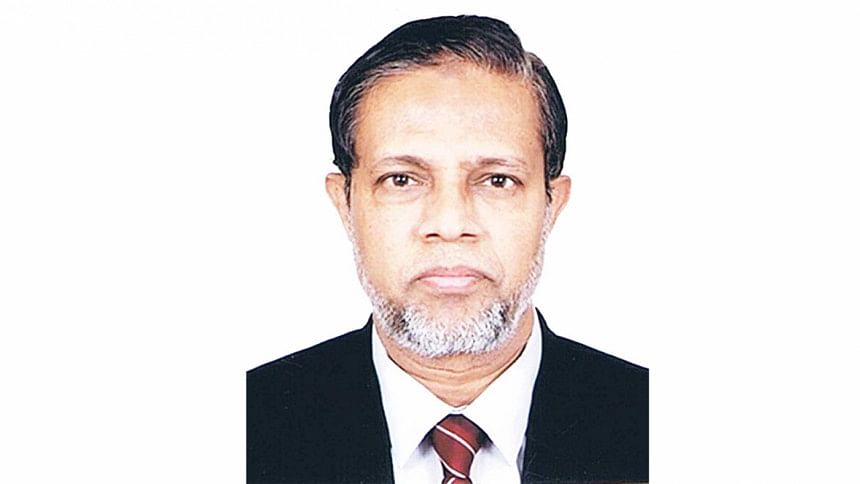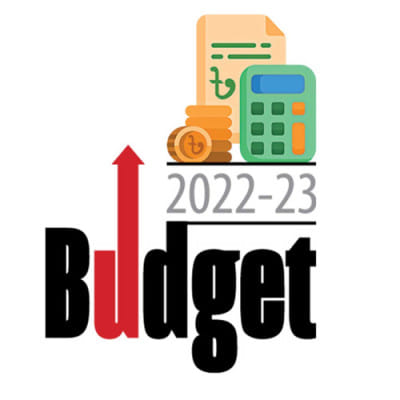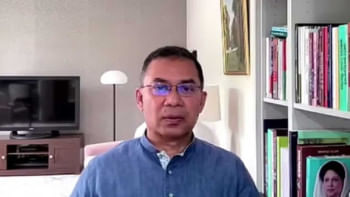Making budget for life and livelihood


In the last two years, many expected that the budget would be framed keeping three perspectives in mind: economic aspect concerning people's lives and livelihoods; ethical aspect regarding legalising black money at a substantially reduced rate of tax, without any question and penalty; and the need for thinking out of the box of a conventional annual budget.
First of all, we urgently needed a budget for life and livelihood as the Covid-19 pandemic raged on. It has been the need of the hour. Not only in Bangladesh, but countries throughout the globe are also compelled to formulate extraordinary budgets.
As external trade activities are facing serious disorders due to the disruptions caused by the pandemic and the ongoing Russian-Ukraine war, countries are busy looking for ways to protect their own homes.
One good news for us has always been there that we are getting inward remittances. Our expatriates are sending money home, but the money is not being spent. Remitted money is being stockpiled in bank vaults and contributing to the surplus liquidity in banks.
The construction of houses has stalled and festival sales during Eid and Pahela Baishakh slumped for two consecutive years. Though in recent times, we are seeing a return to buying and selling, tours and transfers and online sales have seen a surge, it can't alone drive the economic recovery.
UPCOMING BUDGET
A national budget can't be separately viewed from a budget of life and livelihood. The budget must show the pathways for life and livelihood of people.
Usually, a national budget deals with all aspects of human life, but all the issues are not adequately focused on. The upcoming budget should have started this practice. It should have been framed like an emergency-cum-recovery time budget. It should not be more like a business-as-usual budget.
In the last two years, some priority sectors were given additional allocations, but those could not be utilised properly and those were not enough to revive an economy, hit hard by the pandemic.
The stimulus packages announced by the government were well-thought-out and praiseworthy. But the purpose of the intervention was not fully realised as big businesses could not utilise the money they received. Most of their loans are turning bad now.
On the other hand, small businesses, which were in urgent need of the money to survive and restart, did not get access to the stimulus money as banks could not disburse the money in full due to procedural limitations.
Banks were not the right choice for the job as they do not have direct links with small-scale businesses scattered across the country that are more connected with microfinance institutions. These are the businesses that needed the money most.
A financial insurance scheme could be developed to take money to small entrepreneurs as quickly as possible. They are the driving force of the economy.
They are not job-seekers.
They are producers, they are consumers, and they are employers. The economy will not survive if these informal sector businesses cannot operate.
Some crowds in shopping malls and markets or full bookings in hotels in tourist areas do not represent the whole country. Certain sections of people would point to the crowds and say, "See, businesses are bouncing back. People are spending. Our foreign currency reserve is soaring, per capita GDP has been sharply increased, etc."
But this is not the case. There has been inequality in the economy, and the pandemic has widened it.
The next budget needs to look into the livelihood issue and drop extravagant projects to spend more on social welfare, health, and education.
Many labour-intensive economic sectors are on the verge of ruination. The budget should identify them and support them. Sectors that will save lives and jobs should be prioritised over projects that will take years to complete and deliver fruits.
Whatever budget we have for education, it all went to pay for the salary of teachers, the distribution of free books, buying chairs and tables and constructing school buildings. No effective initiative to ensure the study of students, particularly those in villages, who lost two academic years during the pandemic. The price of this learning loss will be huge.
So, allocating more for education in the budget will not do any good if students cannot learn and if quality education is not ensured. Recruiting several thousand doctors and paying them salaries would not improve healthcare services if they are not properly trained and proper facilities are not put in place.
THE BLACK MONEY DEBATE
It has been crystal clear that money is being generated illegally through corruption and a good portion is smuggled out of the country. This money needs to be incorporated into the formal economy. But at what and whose cost?
You are not fining those who amassed money through illegal means, you are not questing their source of income and you are welcoming them to legalise their unjust incomes through a subsidised tax rate, whereas genuine taxpayers are made to pay 25 to 30 per cent. This is an ethical deviation, which will demoralise and punish honest taxpayers and reward the wrongdoers. What is even more alarming, the holders of the money spend to enhance their influence in the power circle and destroy our institutions one by one.
If they are allowed to invest in the sectors like housing and the stock market, it will cause price inflation and put others' money at risk. The scheme also contradicts the state policy stipulated in the Constitution.
If the government still wants to include black money into the formal economy, it can allow it on the condition of paying applicable tax and investing in labour-intensive and production-oriented industries.
Emerging economies need to launch drives against black money every 15 to 20 years, and allow legalising undisclosed income through strict rules and payment of higher-than-usual taxes with fines.
REVENUE INCOME
Where will you get the money from when the economy is stalled? If people lose income, they will not get income tax. If sales drop, VAT revenue will be less. If imports fall, customs duties will decline, though, in recent times, there has been a substantial increase in customs duty on imported items as the prices of imported items have gone up globally. In such a situation, revenue income will definitely fall and there is no point in raising hue and cry over it.
The government needs to be practical in setting revenue targets for the National Board of Revenue. When the entire economy is in crisis, setting a high-flying revenue generation target will be unwise. The government should cut recurring non-development, luxurious, and rent-seeking expenditures.
The NBR has long been suffering when it comes to the manpower issue. Since the 1990s, it has spent about Tk 500 crore on digitalisation projects, but the automation is progressing at a snail's pace.
A quick switch to the online system remains the only answer to the NBR's problem. It will help overcome manpower shortage, plug tax evasions and make up the revenue deficit to some extent. It remains the only option for NBR since there is little scope to impose new taxes during this post-pandemic and pre-election year.
The author is a retired secretary and former chairman of the National Board of Revenue

 For all latest news, follow The Daily Star's Google News channel.
For all latest news, follow The Daily Star's Google News channel. 



Comments